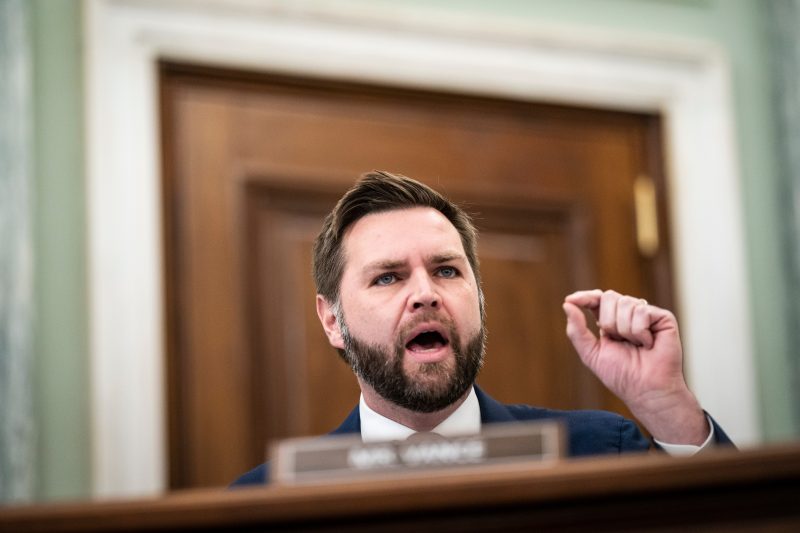In the recent announcement of J.D. Vance’s Senate bid, the well-known author and venture capitalist has elicited mixed reactions from Senate Republicans who believe he has much to learn about the spotlight of politics. Vance, known for his book Hillbilly Elegy, which explored the struggles of working-class Americans, has now decided to step into the political arena by running for the U.S. Senate seat in Ohio. However, some Senate Republicans are skeptical of Vance’s readiness for the intense scrutiny and demands of a Senate campaign.
One of the key criticisms leveled against Vance by Senate Republicans is his lack of experience in political office. While Vance brings a fresh perspective as an outsider to politics, his opponents argue that he may not fully grasp the complexities and challenges of public service. In a highly competitive and high-stakes arena like the U.S. Senate, the ability to navigate intricate policy issues, build relationships with fellow legislators, and effectively communicate with constituents is crucial. Vance will need to quickly adapt and demonstrate his capacity to handle the pressures of a political campaign.
Additionally, Vance’s outspoken and at times controversial stances on certain issues have raised concerns among Senate Republicans. His fiery rhetoric and provocative statements, while effective in generating attention and stirring public debate, may also alienate potential supporters and create divisions within the party. In a polarized political climate, the ability to strike a balance between standing firm on principles and reaching out to a broad base of voters is essential for a successful Senate campaign.
Furthermore, Vance’s connection to former President Donald Trump could be a double-edged sword in his Senate bid. While aligning himself with Trump may energize a segment of the Republican base, it could also be a liability in appealing to moderate and independent voters. Navigating the complexities of Trump’s legacy and maintaining a distinct identity will be a delicate balancing act for Vance as he seeks to broaden his appeal beyond a narrow ideological niche.
However, despite these challenges and criticisms, Vance’s entry into the Senate race has injected a new level of energy and excitement into the political landscape. His outsider status and willingness to challenge the status quo could resonate with voters disillusioned with conventional politicians and seeking a fresh voice in Washington. Vance’s ability to harness this momentum, broaden his appeal, and demonstrate his readiness for the spotlight will be crucial in determining the outcome of his Senate bid.
In conclusion, J.D. Vance’s decision to run for the U.S. Senate has sparked a lively debate within the Republican Party. While he brings a distinctive perspective and a passionate following, Vance will need to overcome the skepticism of Senate Republicans, navigate the complexities of political office, and broaden his appeal to different voter groups to succeed in the competitive arena of U.S. Senate campaigns. Only time will tell whether Vance can rise to the challenge and prove his critics wrong.

